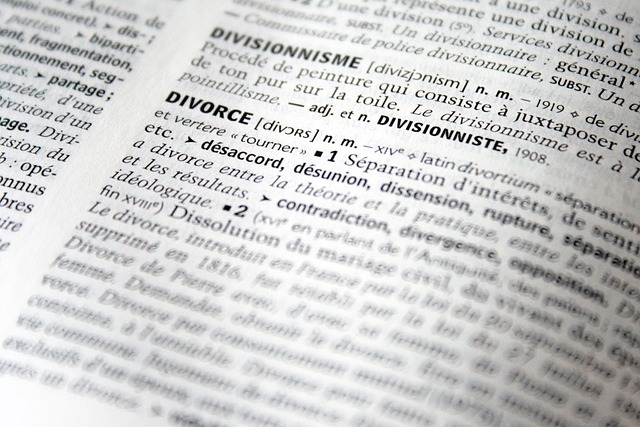Co-ownership property disputes often arise from financial disagreements and mismanagement, requiring a robust legal framework for resolution. Understanding mediation, arbitration, and jury trials is crucial. Financial fraud in these cases demands meticulous investigation using advanced analytics to detect anomalies. Civil actions offer advantages over criminal proceedings, enabling damage recovery and asset reclaim. A comprehensive strategy involving technology, legal updates, and proactive measures minimizes fraud risks, enhances transparency, and upholds fairness in co-ownership disputes.
Financial fraud, particularly within co-ownership property disputes, poses significant challenges. This article delves into the intricate web of legal frameworks governing these disputes and explores common causes driving fraudulent transactions. We discuss red flags and advanced analytical techniques for early detection. Additionally, we analyze civil and criminal legal options available to address such cases. Finally, we present preventive measures aimed at fortifying fraud detection systems in real estate co-ownership. Understanding these aspects is crucial for safeguarding the integrity of property transactions.
- Understanding Co-Ownership Property Disputes: Legal Framework and Common Causes
- Detecting Fraud: Red Flags and Advanced Analytical Techniques in Co-Ownership Scenarios
- Exploring Legal Options for Fraudulent Property Transactions: Civil vs Criminal Proceedings
- Preventive Measures: Building Robust Systems for Fraud Detection in Real Estate Co-Ownership
Understanding Co-Ownership Property Disputes: Legal Framework and Common Causes

Co-ownership property disputes often arise from misunderstandings or disagreements between individuals who jointly own a piece of property. These conflicts can range from issues related to financial contributions and property management to discrepancies in ownership rights and responsibilities. The legal framework surrounding co-ownership is designed to protect the interests of all parties involved, ensuring fair resolution through various legal options.
Common causes of such disputes include unequal distribution of expenses, one owner’s failure to uphold their duties, or disagreements over significant decisions regarding the property. In cases where negotiations fail, owners may turn to legal avenues for resolution. These can involve mediation, arbitration, or even jury trials, providing a means to navigate complex issues and reach winning challenging defense verdicts. Understanding these legal options is crucial for addressing co-ownership property disputes effectively, ensuring that rights are protected within the bounds of general criminal defense strategies.
Detecting Fraud: Red Flags and Advanced Analytical Techniques in Co-Ownership Scenarios

In co-ownership scenarios, detecting financial fraud requires a meticulous approach due to the complex dynamics involved. Red flags may include unusual financial decisions, like sudden large withdrawals or investments without clear justification, especially when compared to the respective business’s historical behavior. Discrepancies in accounting records, unexplained discrepancies between partners’ transactions, and potential diversion of funds towards personal use are all critical indicators.
Advanced analytical techniques play a pivotal role in these high-stakes cases. Utilizing data analytics tools can uncover hidden patterns and anomalies that might suggest fraudulent activities. For instance, anomaly detection models can highlight unusual spending or investment trends, while network analysis techniques can map financial interactions, aiding in identifying potential red flags related to co-ownership property disputes. Moreover, white collar defense strategies often involve leveraging these analytical tools to explore legal options, such as civil litigation or criminal charges, ensuring justice is served.
Exploring Legal Options for Fraudulent Property Transactions: Civil vs Criminal Proceedings

When it comes to detecting and addressing financial fraud involving co-ownership property disputes, understanding the legal landscape is paramount. While criminal proceedings play a crucial role in prosecuting white-collar and economic crimes, civil actions offer distinct advantages for achieving extraordinary results. Civil lawsuits allow for recovery of damages and restitution, providing victims with a means to seek compensation for losses incurred due to fraudulent transactions.
In contrast to criminal cases, which focus on punishment and deterrence, civil proceedings enable victims to assert their rights and recover lost assets. An unprecedented track record of successful outcomes in co-ownership property disputes has emerged through strategic civil litigation, offering a powerful tool against financial fraudsters. This approach not only facilitates the return of illicitly obtained properties but also serves as a deterrent for future fraudulent activities.
Preventive Measures: Building Robust Systems for Fraud Detection in Real Estate Co-Ownership

In the realm of financial fraud detection, particularly within co-ownership property disputes, building robust systems is paramount. This involves a multi-layered approach that combines advanced technology with stringent legal protocols. By integrating machine learning algorithms and data analytics, real estate transactions can be meticulously scrutinized for anomalies, ensuring every aspect of co-ownership is transparent. These measures not only deter potential fraudsters but also equip stakeholders—from corporate and individual clients to the philanthropic and political communities—with valuable insights, fortifying their respective business interests.
Furthermore, staying abreast of evolving legal options is crucial. Adaptable legislation and robust judicial interpretations play a pivotal role in addressing emerging fraud trends. Regular reviews of existing laws and policies enable stakeholders to leverage the full range of available tools. This proactive stance not only mitigates risks but also safeguards the integrity of co-ownership property disputes, fostering an environment that supports fair practices and discourages fraudulent activities.
In addressing co-ownership property disputes, understanding the legal framework and common causes is a foundational step. Detecting fraud through red flags and advanced analytical techniques is essential for preventive measures. While civil and criminal proceedings offer different legal options for fraudulent property transactions, building robust systems for fraud detection remains paramount. By implementing these strategies, we can significantly mitigate risks associated with co-ownership scenarios, ensuring fairness and security in real estate transactions.






